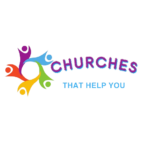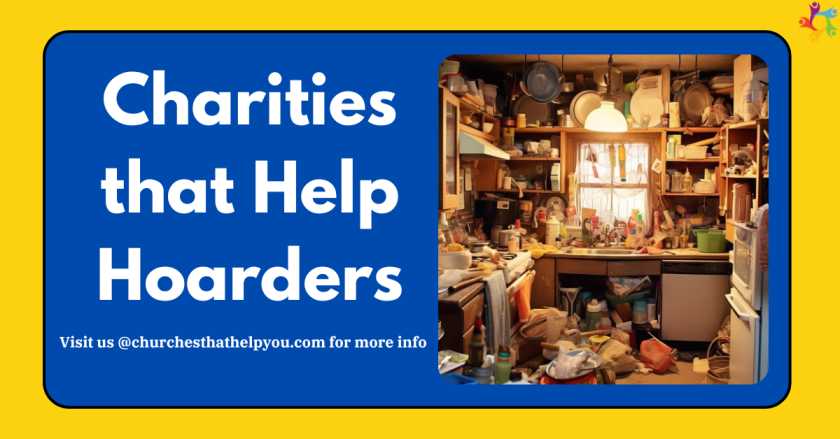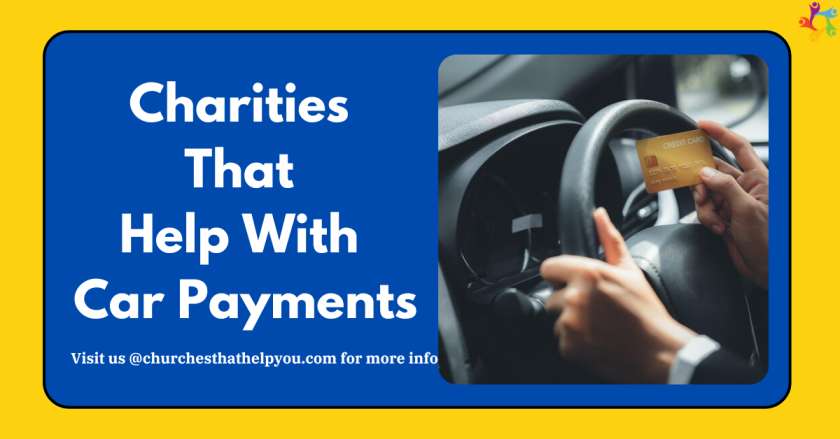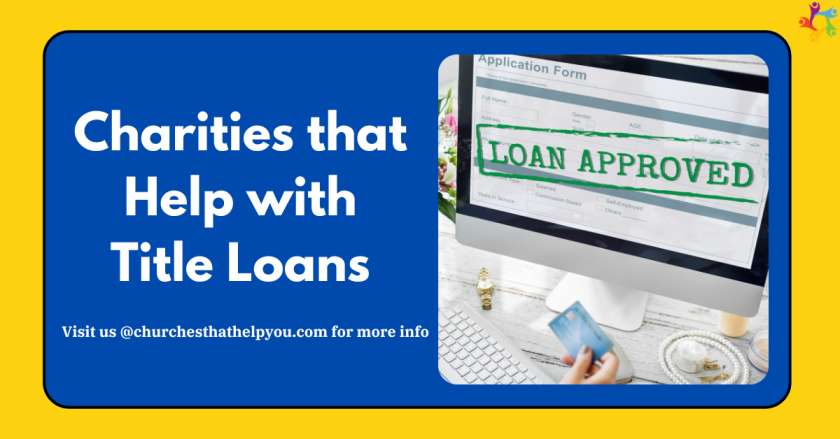Hoarding disorder is a mental health problem that can be diagnosed by a doctor. But you may also experience hoarding as part of another physical or mental health problem.
Patients with hoarding disorder have persistent difficulty getting rid of their possessions regardless of their value to them. Getting rid of items generates feelings of exhaustion and anxiety, and the inability to do so is known to be associated with great shame and distress for hoarders.
Essentially, hoarding is associated with psychological problems, including stress, melancholy, and OCD. These psychological factors make it difficult for people to decide on their possessions, thus resulting in the accumulation of items over time.
Hoarders need help. It is very essential to support and help them Don’t worry! Charities help them. Yes, I know a few charities that help hoarders as one of my family members got help from the charity. So, in this article, we are going to discover the hoarders that may help you.
Key points:
- Some charities that work with hoarders offer services that are specific to hoarding and the difficulties it presents.
- These services may include cleaning, sorting, consulting, and therapy, which can help to deal with the clutter as well as the psychological problems that may have led to it.
- Charities that operate with hoarders also contribute to the creation of awareness of hoarding disorder.
- These charities aim to ensure that they avail their services to the needy, and most of the time, they offer their services for free or at a very cheap cost.
List of Charities that Help Hoarders
Here after researching a lot, and listening to many success stories, I listed a few charities that help hoarders. Let’s check the list and if you need you can contact them too.
1. Local Hoarding Task Forces and Cleanup Services
For instance, many cities and towns have developed hoarding task forces or cleanup services that are aimed at helping hoarders and their loved ones. These organizations work with mental health workers, cleaning services, and other facilities within the society. Here’s how they can help:
Cleansing services and task forces can put you through to therapists who treat patients with hoarding disorders. These specialists provide advice, support, and guidance on how to address hoarding issues.
These services include services that involve helping to sort through clutter, sorting through clutter to remove unnecessary items, or making a home safer. They are aware of the specific difficulties that people, who suffer from hoarding, face and adapt their help to these people.
For more info visit here: https://hoarding.iocdf.org/hoarding-task-forces/
2. Hoarding Cleanup
Storage Cleaning is a national database of qualified storage professionals, including storage cleaning companies, storage therapists, and psychiatrists in the United States (and some other countries) who are familiar with storage disorders.
Many individuals have successfully reclaimed their living spaces and lives thanks to the support of Hoarding Cleanup (https://www.hoardingcleanup.com/). Their testimonials highlight the transformative impact of their services.
To get help from Hoarding Cleanup, visit their website or contact their support team to discuss your needs and schedule a consultation.
3. International OCD Foundation (IOCDF)
The IOCDF provides valuable information for families, mental health professionals, and community responders dealing with hoarding disorders. Key resources include:
The IOCDF has an extensive resource list that can be used to find therapists, treatment facilities, clinics, and support groups. This directory is helpful no matter what you seek – therapy or support in your area. Visit their website: https://hoarding.iocdf.org/
4. National Association of Productivity & Organizing Professionals (NAPO)
NAPO is not a charity, but it provides a list of organizers who help with hoarding disorders. These professional organizers can help sort, arrange, and design useful living spaces. If you want to get organized, you should consider consulting a NAPO professional.
5. Children of Hoarders
Children of Hoarders (https://childrenofhoarders.com/) is dedicated to assisting the families of hoarders, providing information and guidance to the affected individuals. They offer families counseling services, support groups, and educational materials aimed at helping families cope with hoarding behaviors.
The organization provides the readers with the testimonies of children who grow up with hoarding parents to show the emotional side of the problem and the need for help.
6. Anxiety and Depression Association of America
According to ADAA, the reason behind the hoarding disorder is anxiety and depression. They provide information, materials, and online workshops on different mental health disorders, including hoarding. Therefore, it is possible to state that the analysis of the emotional aspects of hoarding can help individuals and their families cope with the difficulties that they experience.
There is some free government help for hoarders also, you can apply and get it.
Free Government Help for Hoarders
Government and community programs assist hoarders, helping them manage, clean, and improve their living spaces. Here are some resources available:
Local Mental Health Services
Many cities and counties offer free or low-cost mental health support to address hoarding disorders, often provided through health departments or behavioral health services. These services include therapy and counseling, helping hoarders manage the cognitive aspects of hoarding.
Social Services and Community Support
Social services agencies sometimes assist with hoarding cases, especially when health and safety are at risk. They may coordinate resources like cleanup crews, social workers, and housing support to help create a safer environment.
HUD and Non-Profit Assistance
The Department of Housing and Urban Development (HUD) sometimes grants non-profit organizations and community groups focused on housing safety, including help for hoarding. Some nonprofits also offer free cleaning and organizational help through grant funding.
Code Enforcement and Health Departments
Local code enforcement and health departments might provide intervention programs when hoarding becomes a health or safety hazard. They work with individuals to develop cleaning plans or find resources, often at reduced or no cost.
Online and Support Groups
Some organizations, like the International OCD Foundation, offer online resources, local support groups, and educational programs specifically tailored for hoarding disorder.
Types of Support Charities Offer to Hoarders
Here we have mentioned the types of support assistance that charities generally offer to hoaders.
- Professional Therapy and Counseling: Psychotherapists and counselors who specialize in hoarding can offer individualized treatment plans that will address the affective and cognitive components of the disorder.
- Community Support Groups: Self-help groups provide camaraderie and understanding, which is important for hoarders to know that they are not alone in their struggle and that help is available.
- Charitable Organizations: Most charities aim to offer a holistic solution to hoarders and their families through cleaning services, counseling, and education.
How Can You Apply for the Charities Help to Hoarders?
Applying for help from charities that assist hoarders typically involves several steps. Here is a general guide to help you through the process:
1. Identify Relevant Charities
Research and identify charities that specifically offer assistance to hoarders. Some well-known organizations include:
- Hoarding Cleanup (part of Steri-Clean)
- Clutterers Anonymous
- International OCD Foundation (has resources on hoarding)
- The Hoarding Project
2. Gather Necessary Information
Before reaching out, gather all relevant information about the situation:
- Detailed description of the hoarding problem
- Specific needs (cleaning, organizing, mental health support, etc.)
- Any relevant medical or psychological information
3. Contact the Charity
Reach out to the charity through their preferred contact method. This could be via phone, email, or an online application form. When contacting them, be clear and concise:
- Explain your situation
- Specify the kind of help you need
- Provide your contact details
4. Follow Application Procedures
Some charities may have specific application procedures. This can include:
- Filling out an application form
- Providing documentation or photos of the hoarding situation
- Possibly undergoing an assessment by the charity’s team
5. Participate in the Charity’s Programs
Once accepted, actively participate in the programs and services provided. This could involve:
- Attending support groups or therapy sessions
- Working with professional organizers or cleaning services
- Following through on any recommendations or plans set by the charity
Conclusion
Charities, organizations, and mental health workers are very useful in helping hoarders and their families. They are involved in the provision of education, practical help, and counseling, which makes a positive difference in the lives of people.
In this article, we have given all the details that will help you a lot. We have also listed a few faqs that will resolve your queries. If you have any more queries then you can contact us.
FAQs
What is the best help for a hoarder?
Cognitive behavioral therapy is the main treatment for hoarding disorder. Try to find a therapist or other mental health provider with experience treating hoarding disorder.
In what ways do charitable organizations help hoarders?
Charities also offer services such as cleaning services, counseling, group sessions, and educational material to help hoarders and their families.
Is there free help available for a hoarder?
Yes, why not? Charities offer free help to a hoarder. You can visit the site churchesthathelpyou.com for more details.
- Financial Help for Homeschooling – How to Get Help? - April 1, 2025
- Help with Emergency Vet Bills – Exclusive Tips to Get - March 28, 2025
- Charities That Offer Emergency Help Paying Car Insurance - March 25, 2025




me and my wife are recently homeless in Waterloo Iowa looking for possibly hotel voucher or help just to have a roof over our head until we can get stable work please